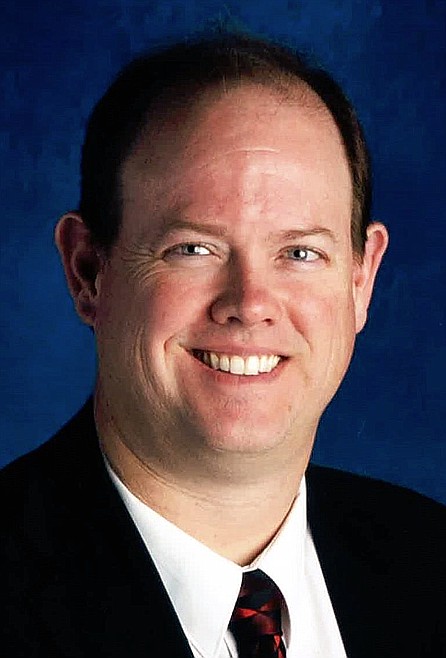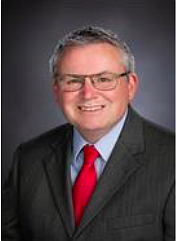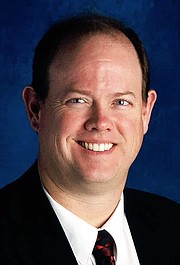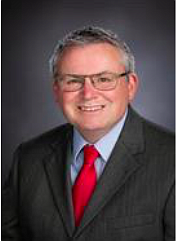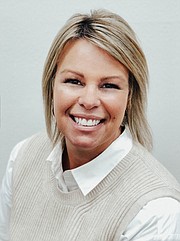Critical miscommunication
Idaho's education leader says there was a miscommunication when she told local Republicans that Coeur d’Alene School District was one of the “worst offenders” in teaching critical race theory.
State Superintendent of Public Instruction Sherri Ybarra made the comment during a 15-minute presentation Nov. 23 to the Kootenai County Republican Central Committee.
“My comment about the district being one of the worst offenders reflects the perception that I heard from parents and patrons,” Ybarra told The Press on Friday. “I was acknowledging that I heard from specific multiple concerns from the Coeur d’Alene community members around critical race theory in their lessons and curriculum in the district schools.”
Coeur d’Alene School District Superintendent Shon Hocker said he wants to clear up that misinformation.
Hocker said Ybarra admitted that’s not what she meant to say, and accidentally omitted the word “alleged.”
“I just don't want our community to have any sort of a thought that (Ybarra) believes that we are a ‘worst offender,’” Hocker said Friday. “She has told us that that's not the case.”
Scott Maben, director of communications, said critical race theory is not taught in Coeur d’Alene public schools, nor is it embedded in curriculum, operating plans or staff programs.
“It hasn’t found its way into our school district, nor has it been considered — period,” a statement from the district said.
In an interview with The Press, Ybarra said she’s heard from different community members and seen information at events that show critical race theory, according to some people’s definition, is being taught in the district. Ybarra said people have seen terminology in curriculum and shown her specific examples of what they think critical race theory is.
She said when she asked community members to explain their concerns, they told her the district is teaching social emotional learning.
Ybarra said that while the school district says they're not teaching critical race theory, they are teaching someone else’s definition of critical race theory.
Ybarra said she believes some of the debate comes from the fact that critical race theory is hard to define and everyone has different definitions.
Debbie Critchfield, a Republican candidate in the 2022 Idaho State Superintendent of Public Instruction race and former president of the State Board of Education, said Ybarra was essentially pandering to her Central Committee audience — which backfired when video of her presentation was shared on social networks.
Critchfield also said Ybarra hasn’t done anything to provide real leadership to districts to address concerns about critical race theory and other issues that affect parents, students and educators, other than make conflicting statements.
Hocker said that when community members have come to talk to the district or teachers to ask about critical race theory, the questions usually focus on equity and social emotional learning.
Keith Orchard, mental health specialist for the Coeur d’Alene School District, said social emotional learning involves giving kids tools to learn how to work through their emotional issues.
He said students are taught to solve conflicts, be respectful and reliable, and other life skills that parents are already teaching and teachers reinforce in the classrooms.
Maben said equity in education is about improving outcomes and experiences for each student, and that includes removing barriers to learning.
“Ensuring academic success means providing instruction and resources to students based on their individual needs, not based on what works for the majority of students,” Maben said Friday. “We truly believe each student deserves to feel seen, valued, loved and challenged to learn when they enter our schools.”
In April, Idaho passed a “Dignity and Nondiscrimination in Public Education Act” that prohibits public schools from directing or compelling a student to “personally affirm, adopt, or adhere” to any of the tenets of critical race theory.
Maben said the district already had an existing non-discrimination policy before the new law was enacted.
Hocker said he thinks part of the reason for the confusion stems from the COVID-19 shutdown of community members coming into schools and participating in programs.
“I’m hopeful moving forward we have more opportunities for community engagement,” Hocker said. “We are actively putting together plans to help create even more community engagement opportunities, more community input, really helping us learn what does our community think."
Ybarra said the Cd’A School District's actions in holding community forums and being open with the public on the topic is a prime example of how school districts should address the issue.
“I appreciate the efforts of the district superintendent and board to listen to the concerns of parents and other community members regardless of how spirited those conversations can be,” Ybarra said. “All districts, like Coeur d’Alene, need to encourage parental involvement, and that was the underlying theme of my remarks.”
A committee of 34 parents and community members within the district started meeting this week to review the district's Equity Framework.
“We've had people, community members show up at board meetings and really thank us for doing that work and for that involvement,” Hocker said. “I think we’re having some good success.”


